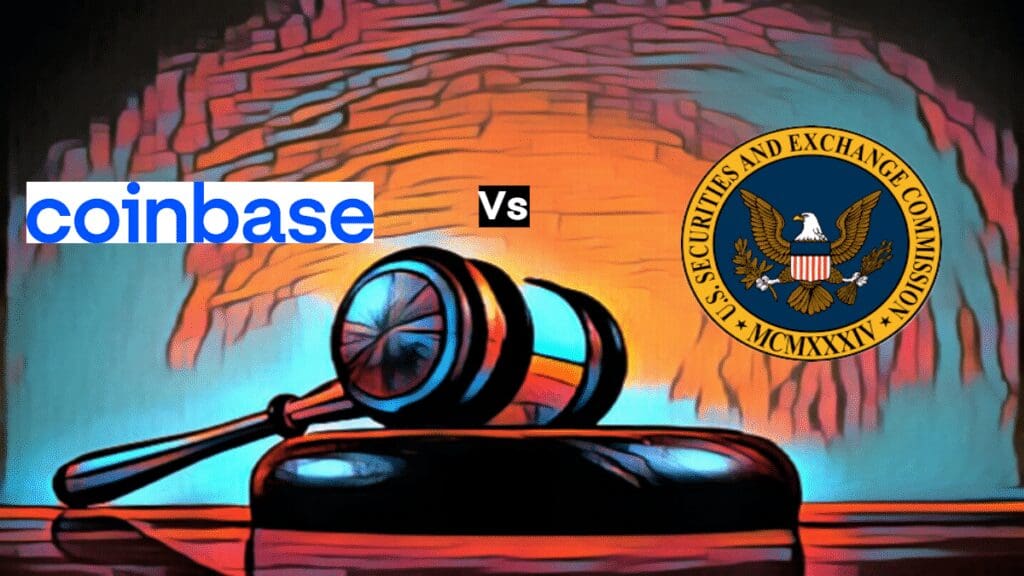Paul Grewal, the chief legal officer of Coinbase, voiced his concerns with the SEC’s response and stated that the agency will be happy to continue regulating and enforcing laws to monitor the industry.
The U.S. In response to Coinbase’s request for clear crypto regulation, the Securities and Exchange Commission (SEC) has now filed a formal response in court, indicating that any rulemaking may take years and that enforcement proceedings will continue in the meantime.
Read more: Coinbase Files A Lawsuit To Force The SEC To Respond To Its Rules Petition
The SEC stated in court documents submitted on May 15 that it does not have to comply with Coinbase’s petition’s conditions and that the company has sought a complicated set of reforms and rule-making in an unreasonable amount of time.
Using the justification that mandamus is an “extraordinary remedy” and that Coinbase “does not and cannot demonstrate a right” to relief, the securities regulator has asked the court to reject Coinbase’s petition for mandamus.
Paul Grewal, the chief legal officer at Coinbase, claimed on Twitter that the filing might mark the first time the securities regulator has clarified its stance on whether the SEC needs to adopt regulations for the cryptocurrency business. He added that there were still many issues on the table that required explanation.
Today the SEC responded to Coinbase’s petition for a writ of mandamus — asking the court to require the SEC to respond just yes or no to whether it will undertake rulemaking for our industry. The SEC’s answer? A resounding maybe. 1/7
— paulgrewal.eth (@iampaulgrewal) May 16, 2023
According to him, “the SEC told the court that rulemaking may take years and they’re not in a rush,” adding:
For the immediate future, the SEC admitted that it will continue to use enforcement actions in place of rulemaking, but do not worry—those enforcement actions “may eventually inform” future rulemaking that is not yet planned.
Gary Gensler, the head of the SEC, stated that the regulations for cryptocurrencies had already been published and were sufficient in his keynote speech at the Financial Markets Conference just hours before the filing.
Though it seems to be more in reference to comments regarding Gensler’s opinions that the majority of cryptocurrency is classed as a security, it is interesting to note that SEC separated itself from any public comments and views of its chair in its most recent filing.
“The SEC also said that the public statements by Chair Gensler are not formal guidance or policy statements from the SEC and the public cannot rely on them as such,” Grewal said.
In the end, the regulator stated that it shouldn’t be forced to create regulations for the cryptocurrency industry.
“Neither the securities laws nor the Administrative Procedure Act imposes upon the Securities and Exchange Commission an obligation to issue the broad new regulations regarding ‘digital assets’ Coinbase has requested,” the SEC said, adding that:
“Considering the different approaches Coinbase suggests is an unavoidably difficult task, as Coinbase’s own contributions demonstrate. Coinbase, however, submitted its regulatory petition less than ten months ago, added to it in some areas less than three months later, and just recently attempted to add to the record once more.”
The SEC claims that Coinbase “cannot persuasively claim” that the SEC has suffered loss by overlooking the petition since it was first submitted, which forms a foundation of the SEC’s case for requesting the denial.
Furthermore, the firm cannot demonstrate that previous SEC enforcement actions against the cryptocurrency industry represent “a Commission decision not to engage in rulemaking.”
The agency added that “the Commission continues to consider Coinbase’s petition in the ordinary course.”
As stated by Grewal, “Overall, the SEC’s response reinforces Coinbase’s long-standing concern that our industry needs clarity on what the SEC may at any time consider being within or outside its jurisdiction, and it is likely to continue changing its mind along the way.”

